
A Kiss for Cinderella
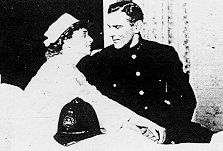
The play opened at the Empire Theater on December 25, 1916 and ran for 152 performances.
Cinderella (Maude Adams playing the part of Miss Thing) is a poor London girl who takes care of a group of refugee children from various countries during World War I. She earns money wherever she can. She loves the story of Cinderella and finally when she is worn out, half-starved and feverish she dreams of being at the Ball.
The play opened in New York in 1916. One review went this way:
"Maude Adams is utterly winsome, so dauntless and gently pathetic that she almost breaks your heart. It is nearly twenty years since she began building America's idea of what a Barrie heroine should be. There may be some few who, by this time, would ask for a younger actress to play 'Miss Thing', but it is to be hoped that the great majority of us would have risen in our seats at the sight of any such pretender and hissed the brazen creature off the boards."
“All the critics admired, without reservation, Maude's performance as Cinderella.” (Maude Adams, an American Idol: True Womanhood Triumphant in the Late-Nineteenth and Early-Twentieth Century Theatre, doctoral thesis, 1984, Eileen Karen Kuehnl)
In November, during a performance, she collapsed due to influenza. She may also have had a nervous breakdown a short time later.
=====James Matthew Barrie: An Appreciation by Professor James A. Roy, 1938=====
A Kiss for Cinderella is a very beautiful and tender little thing, a fairy tale brought up-to-date, and placed in a modern setting. Very delicately and sympathetically, Barrie explores the mind of the poor little drudge and finds romance there-romance with makes life possible and endurable for her and raises her for one brief moment to be the equal of Princes. No one but Barrie would have dreamed of making a Fairy Godmother out of a Red Cross nurse; no one but Barrie would have taken the trouble to follow the dream processes of a waif like Cinderella. No one but Barrie would have dreamed of creating a Cockney King; but that would naturally be Cinderella's idea of what a King was like; he was not vulgar for Cinderella. At the touch of Barrie's magic wand Cinderella's rags disappear and she becomes beautiful; she has even a hint of greatness about her.
=====Essays on Modern Dramatists by William Lyon Phelps; Books for Libraries Press, 1921=====
In A Kiss for Cinderella ( 1916) we have one of the lesser [Barrie] plays, but for all that a thing of beauty. Here he returns to favourite ground, representing life through the imagination of an elementary mind. The old charwoman attends the royal function, where the king and queen are sitting in rocking-chairs and eating ice-cream cones. Lord Times is even higher, as the Quiet was above Setebos. This play indicates that the tenderness in the author's heart cannot be killed by circumstances; in the scene where the charwoman is taking care of the babies, one of them happens to be German. "I couldn't help taking her!" In her poverty and in her charity is there not a rebuke both to those who had much and gave little and to those who foamed at the mouth with indiscriminate hate?
=====Our American Theatre by Oliver M. Sayler; Brentano's, 1923=====
A Kiss for Cinderella, by James M. Barrie, produced at the Empire Theatre, New York, December 25, 1916, by Charles Frohman, Inc., with Maude Adams
=====The Encyclopedia of the New York Stage, 1940-1950 by Samuel L. Leiter; Greenwood Press, 1992=====
An unsuccessful revival of Gillette's 1890 farce, based on Karl Lauf German work, Ein toller Einfall . Its last revival had been in 1901. The original version starred Henry Miller and Maude Adams in the roles of Alfred Hastings and Evangeline Bender. These parts were now taken by Gene Jerrold and Florence Williams.
A revival of the whimsical British comedy that first appeared on Broadway in 1916 with Maude Adams as Miss Thing a penniless cockney drudge who, in wartime London, takes pity on four starving refugee orphans by building makeshift sleeping quarters for them and sharing with them her boiled potatoes and tea. She is investigated by a curious and handsome policeman ( Ralph Forbes), who thinks that she may be a spy. She tells the orphans that she is going to Cinderella's ball, but falls asleep in her doorway, and, while nearly freezing to death in a snowstorm, dreams that she is Cinderella at the ball (which offers a chance for some amusingly fantastical staging and dancing) and that the kindly policeman is Prince Charming.
=====Guide to Great Plays by Joseph T. Shipley; Public Affairs Press, 1956=====
James M. Barrie
Those that are warmed by the sentimental will find a cozy hearth in this tender dream-story of a London drudge whose happiness comes in the form of a policeman.
Miss Thing, a char-girl in the everyday world, is in truth Cinderella, to herself and to the little war orphans she cares for at her home, which she calls "Celeste et Cie". The year is 1916. Miss Thing has four little ones: English, French, Belgian, and Gretchen ("who is not Swiss"). The friendly policeman on the beat watches over her one chilly evening when, having repeated the story of Cinderella to her wards, she sits outside awaiting the Fairy Godmother.
Cinderella goes to the ball. Her Prince is, of course, the handsome policeman. After her delirious dream she awakens, once more Miss Thing, in a convalescent home. But her prince, the policeman, comes to make her happy ever after. She makes him promise to propose twice, so that she can enjoy the fine flush and pride of refusing a man; then -"Quick, David!" -- she accepts his proposal with all the high phrases she has been saving for such a glorious eventuality.
The Cinderella story is one of the basic themes of folklore. Barrie's variation is gracious, tender, playful, touching. Though sentimental, it is neither maudlin nor mawkish. Opening in London on March 16, 1916, with Gerald du Maurier (156 performances), and in New York on Christmas Day of the same year with Maude Adams (155 performances), the play has had numerous London and New York revivals, and has been produced many times throughout the English-speaking world. Luise Rainer made her New York debut in a 1942 revival of the play.
A Kiss For Cinderella has worn well. The Boston Transcript reported on December 27, 1926: "Whoever saw the play in 1917 awaited it eagerly again; in 1926 departed not unblessed . . . Curtain, boy, a quick curtain! Such eye-wetting humor is out of the fashion." The London Times (December 26, 1937) declared: "After a somewhat tedious first act, this curious mixture of a play charms with the fanciful absurdity of its second, and in the third the author is shown at the top of his playwriting form." In a more searching estimate Allardyce Nicoll has said: "He comes as near as any modern dramatist to that atmosphere out of which was created the Elizabethan romantic comedy . . . Part of this atmosphere Sir James Barrie secures by making concrete the fancies of the mind, by mingling together the dream and the reality. In A Kiss For Cinderella . . . the fairy-tale has entered into the common London world . . . His humor is perfect, and his skill in weaving the two worlds thus together has enabled him to establish in modern English dramatic literature an almost unique type of expression."
One might expect the timely references in the play to grow out of date. Indeed the London Times ( December 28, 1937) remarked that "The references to the War and to wounded soldiers are a warning to fanciful dramatists to keep their families pure." Yet it was in the midst of a second World War that Mark Barron, of the Boston Post ( March 15, 1942) declared it "too sugary for such hardbitten times as these."
If you have a sweet tooth, A Kiss For Cinderella is a delicious morsel.
Reviews
It is extremely unlikely that any other living actress would have carried the part of Cinderella as naturally and effectively as she did. Evening Post, Dec. 26, 1916
There is delicacy, variety and animation in her performance, and there are also just the graduations of wistfulness, pathos and humor which the role requires. The World, Dec. 26, 1916
Her artifaces never vary...but they never grow stale. There is a bubbling vitality in her that gives an aspect of freshness in manifestations which have been familiar for years. New York Evening Post, Dec. 26, 1916
Another review:
Miss Adams has spread like a bright veil the charm of her coquetries-the charm that abides the years, that when she quits the stage will be her halo in a multitude of memories. Boston theater-goers would flock to see Miss Adams if it were announced she was to give a reading from the City Directory.
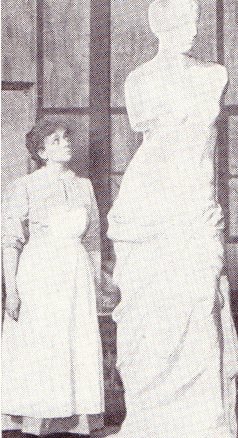
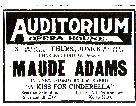 The Oakland Tribune, June 2, 1918 |
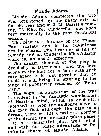 The Lincoln Daily Star, Dec. 31, 1916 |
 The Lincoln Sunday Star, April 29, 1917 |
 The Oakland Tribune, June 2, 1918 |
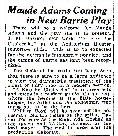 The Oakland Tribune, June 5, 1918 |
 The Oakland Tribune, June 7, 1918 |
The first article is an ad for the play with Maude Adams names featured prominently. The third article notes that the play had been very successful so far, both as a performance and financially. The rightmost article in the first row and refers to Maude Adams as "charming."
In the second row, the article on the right is one of the longest articles on any of the plays.
Right click and choose save on the following link to get the book of the entire play.
A Kiss for Cinderella
| |










